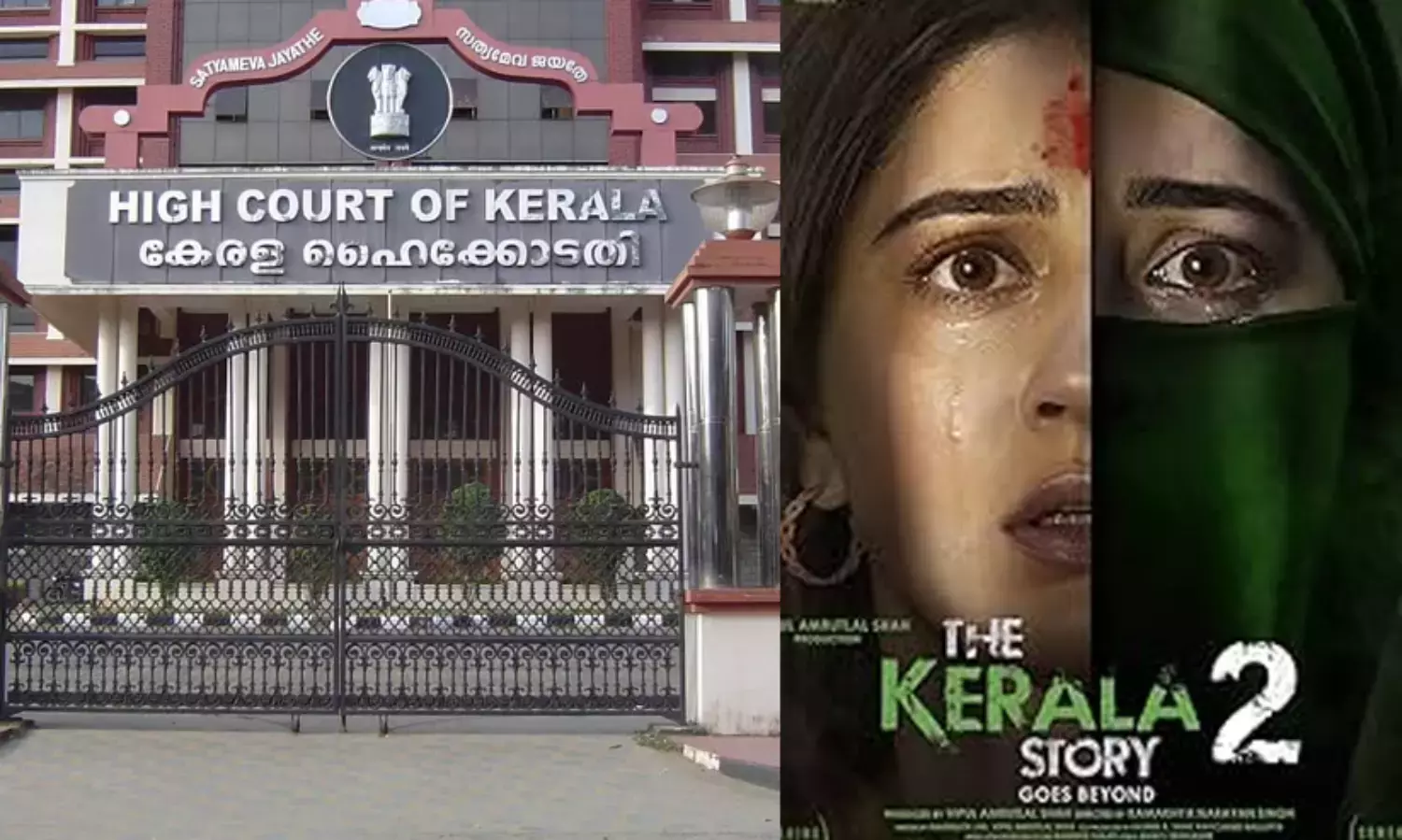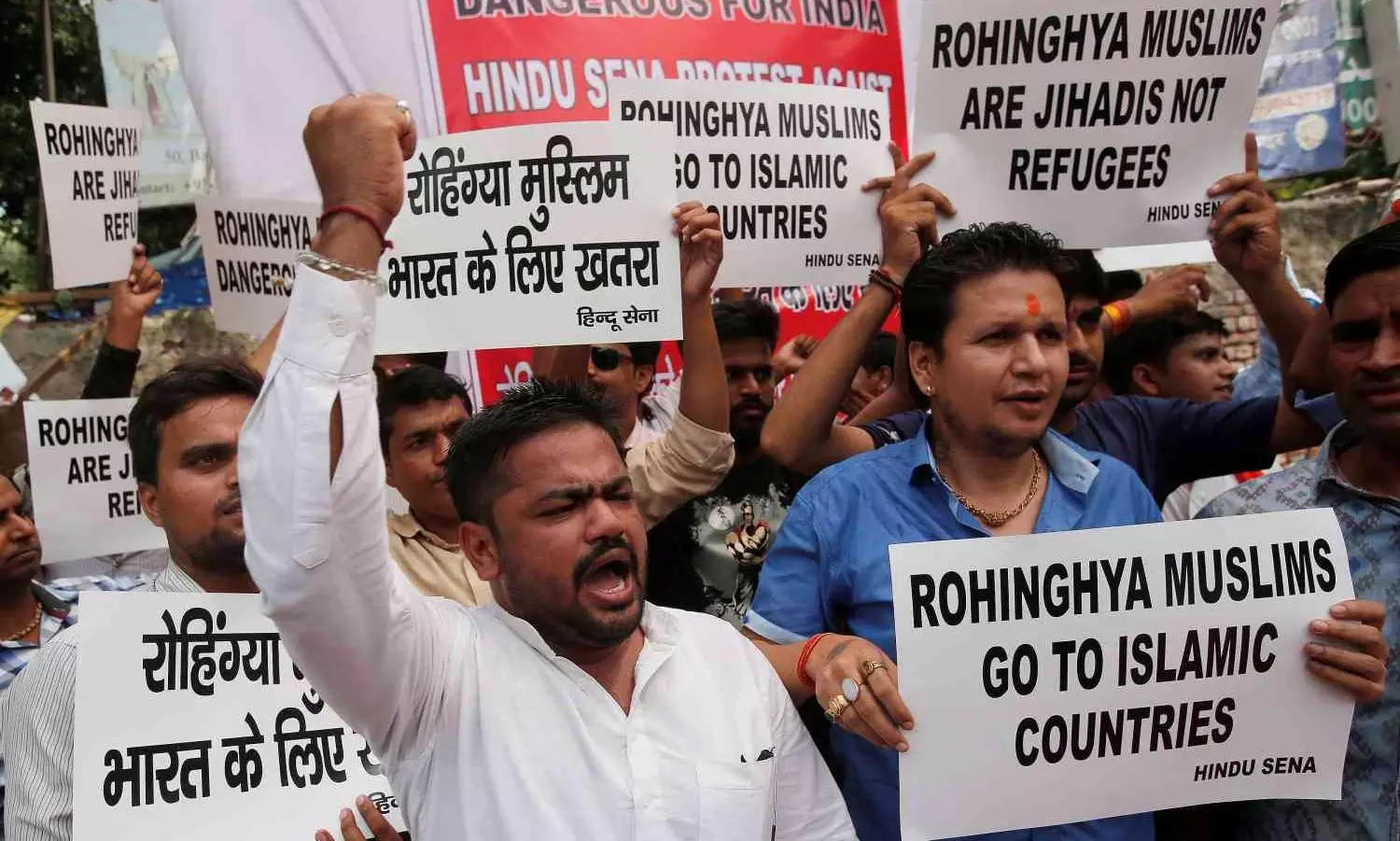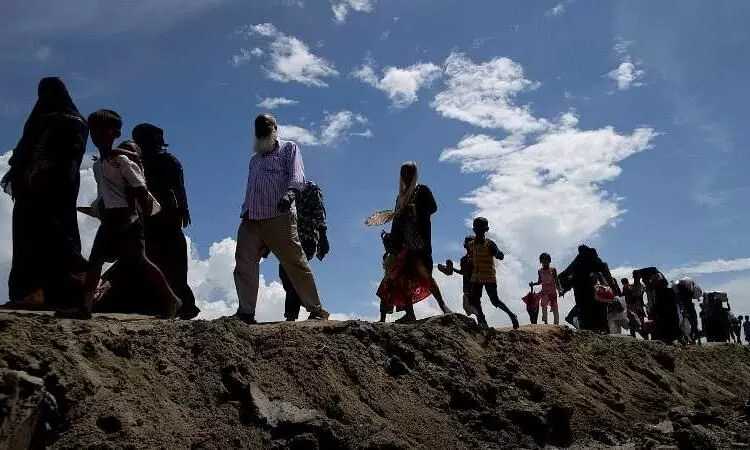
Population, limited resources cited to reject Rohingya, but non-Muslims welcome under CAA
text_fieldsContrary to the claims justifying the Citizenship Amendment Act, which grants citizenship to non-Muslims fleeing religious persecution from neighbouring countries, the Centre argued against allowing Rohingya refugees to stay in India, citing the country’s population, in the Supreme Court.
The government, in an affidavit, informed the Supreme Court of the potential national security ramifications posed by the illegal entry and stay of Rohingya refugees in the country while responding to the notice regarding the detention of Rohingya refugees under the Foreigners Act.
The Rohingya, predominantly Muslims, have fled ethnic violence in Myanmar and sought refuge in neighbouring countries, including India. However, their presence has sparked controversy, particularly in light of the Citizenship Amendment Act (CAA), which offers citizenship to non-Muslim migrants from neighbouring nations.
The government underscored India's non-signatory status to key refugee conventions, the 1951 Refugee Convention and the protocol relating to the Status of Refugees, 1967, asserting that decisions regarding refugee recognition are matters of policy.
The Centre emphasized the need for a nuanced approach, highlighting the country's status as a developing nation with limited resources and the world's largest population. It argued against a blanket acceptance of foreigners as refugees, citing the potential strain on resources and the complexities of managing unchecked immigration.
However, the concerns submitted before the Supreme Court about the Rohingya are seemingly effective for people fleeing religious persecution from neighbouring countries, but the Central government purposefully thrusts security and limited resources issues into the procedural intricacies of policy matters with dubious intentions.
Drawing attention to a 2005 Supreme Court verdict, the government underscored the inherent dangers of unchecked immigration, especially in the context of national security. It pointed out India's porous borders with neighbouring countries and the vulnerability to illegal migration via sea routes, highlighting the continuous threat posed by such influxes.
The affidavit also emphasized the intricate nature of immigration decisions, which are influenced by various factors including social, economic, and diplomatic considerations. It asserted that decisions regarding the grant of immigration status are primarily political and subject to complex interplays of factors, making them unsuitable for judicial intervention.
Moreover, the Centre argued against the petition's plea to alter existing legislation, stating that such demands were beyond the scope of judicial review. It emphasized the importance of upholding the Foreigners Act, 1946, in managing illegal migration and reiterated that directing Parliament to frame laws in a particular manner was not within the court's purview.
While acknowledging the plight of Rohingya refugees, it asserts the need for a pragmatic approach that safeguards both the interests of Indian citizens and the country's security.























